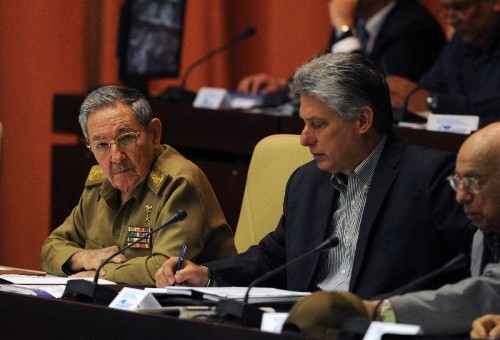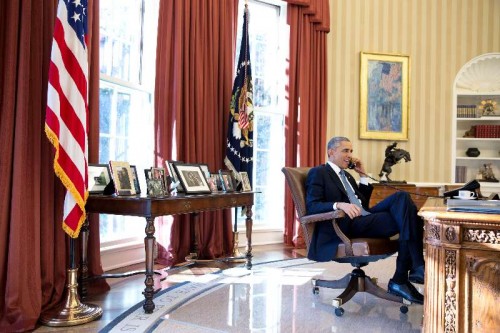
Cuba’s parliament unanimously approved a government decision to restore diplomatic relations with the United States, which was a long-time foe.
More than 600 deputies of the National Assembly of People’s Power voted for the bill, in sharp contrast with the backlash from conservative US legislators to such a decision by President Barack Obama, Xinhua reported.
Cuban leader Raul Castro and Obama announced Wednesday that they had agreed to restore diplomatic ties between both nations and mark the decision with a humanitarian exchange of long-detained prisoners.
The US has begun a new era in its relations with Cuba, which President Barack Obama began to work on after being elected to the White House in 2009, and could lead to official state visits between the leaders of both countries.
White House spokesperson Josh Earnest said at a press conference Thursday that a future visit by Cuban President Raul Castro to the White House could not be ruled out.
Earlier he had said that if there was an opportunity for Obama to visit Cuba, he would not turn it down.
Late next month, Assistant Secretary of State Roberta Jacobson will lead a team of US officials to Cuba for talks on migration, which would be the first high-level mission to Cuba.
“We would… use the migration talks as an opportunity to begin to talk about some of the other things on our agenda,” Jacobson told reporters Thursday.
On Wednesday, Obama and Castro announced a historic agreement to normalise bilateral relations after 53 years of hostility.

Obama was looking to improve relations with Cuba since taking office in 2009 and last April he announced measures to remove certain restrictions on travel and remittances to Cuba.
The same month, Obama promised his counterparts in Latin America and the Caribbean “an alliance of equals” in his first Summit of the Americas in Trinidad and Tobago.
However, the arrest of US contractor Alan Gross in Havana in December 2009, and his imprisonment for subversive activities — considered unjust by Washington — turned into a huge setback to improving bilateral relations, Obama admitted Wednesday.
At the start of his second term in January 2013, Obama instructed his advisors to include the Cuban issue as one of the administration’s foreign policy priorities.
In June this year, secret talks between delegations of both countries began with the aim of normalising bilateral relations, with the meetings aided by Canada and the Vatican.
The historic agreement will lead to opening embassies in Washington and Havana in the coming months, leniency in restrictions on travel and trade between the two countries and allowing remittances from the US to Cuba.
Obama has also asked Secretary of State John Kerry to review Cuba’s inclusion in a list of countries that the US considers to be state sponsors of terrorism.
In this regard, the president also hopes that Congress, which from January onwards is set to come totally under Republican control, will open a serious and honest debate on the unilateral economic embargo imposed on Cuba in 1961, when John F. Kennedy was at the White House.